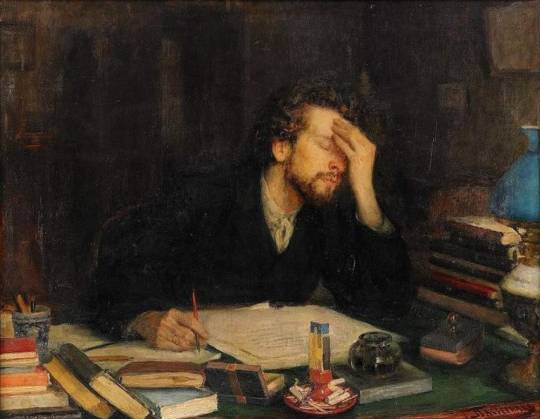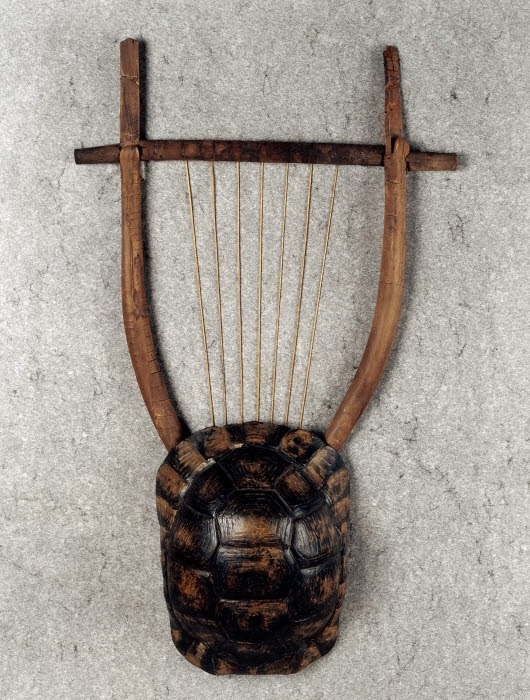#philologist
Explore tagged Tumblr posts
Text
That thing when you ask your professor a question and they get that distant look in their eyes and stare into space for a while and you can see them racking their brain for an answer and then, they get really excited when they realize that they dont know so now they have an excuse to research something new >>>
#classical studies#classical philology#uni life#philologist#light academia#chaotic academia#dark academia#books#aesthetic#poetry#dark acadamia aesthetic#literature#books and libraries#art#university#university student#latin#ancient greek
738 notes
·
View notes
Text

Tolkien’s remarks on his contribution to the preparation of The Jerusalem Bible:
"Naming me among the 'principal collaborators' was an undeserved courtesy on the part of the editor of the Jerusalem Bible. I was consulted on one or two points of style, and criticized some contributions of others. I was originally assigned a large amount of text to translate, but after doing some necessary preliminary work I was obliged to resign owing to pressure of other work, and only completed 'Jonah', one of the shortest books."
(extract from Tolkien Letter #294, to Charlotte and Denis Plimmer)
The book of Jonah, was the one which contains the fantastic narrative of the titular prophet being held inside the belly of a gigantic fish for three days and three nights. Isn’t it fitting for Tolkien to work on this particular book?
Though I hoped he had worked on the book of Job, too—a poet working on an ancient poetic masterpiece.
“I was obliged to resign owing to pressure of other work...” What other work was there? The Jerusalem Bible was published in 1966, years after The Lord of the Rings was published. Perhaps he was working on his legendarium...
#jrr tolkien#tolkien#lord of the rings#jerusalem bible#the bible#the book of Job#the book of Jonah#philologist
7 notes
·
View notes
Text
No one is aware of how obsessed I am from my essence of being a philologist, which is the entire core of my person, the fact that Taylor Swift has released an album called Tortured Poets and The Anthology on these piano poems 📜🎹 !! (more than songs, they feel like piano poems) everything is either hyperbole, sattire or/and an exaggeration of the tragedy and I LOVE it entirely
@taylorswift thank you I adore this album and I protect and appreciate these lyrics with my heart
#taylor swift#ttpd#ts ttpd#the eras tour#ttpd epilogue#the tortured poets department#ttpd the anthology#ttpd poem#ttpd era#Lyrics#hyperbole#poem#poets#tragedy#Philologist#literature#sattire
19 notes
·
View notes
Text

Life is going. Whatever.
#just noticed the typo king regards I don't fucking care#I am very tired#lotr#the hobbit#tagamemnon#romeblr#philologist#martin l west when I catch you martin l west#somebody sedate me#there are more typos I don't care I don't give a fuck
2 notes
·
View notes
Text

Happy Heavenly Birthday John 🎂💔
John Ronald Reuel Tolkien
January 3,1892 - September 2,1973🙏🏻
We Miss You So Much 🕊️♾️
Buon Compleanno in Paradiso 🎂💔
3 Gennaio 1892 - 2 Settembre 1973 🙏🏻
Ci Manchi Moltissimo 🕊️♾️
#jrr tolkien#writer#philologist#worldbook#world book day#fantasy books#Thehobbi#the lord of the rings#theadventureoftombombadil#the silmarillion#30sbook#40sbook#50sbook#60sbook#70sbook#celebrity#legend#we miss you so much#always in our hearts#happy heavenly birthday
4 notes
·
View notes
Text

3 notes
·
View notes
Text
Me when Roman poets contract verb conjugations to make it fit with the metre but the contraction coincides with another, pre-existing conjugation so you just kinda have to guess

Leonid Pasternak (Ukrainian, 1862–1945) - The Torments of Creative Work
#dark academia#light academia#chaotic academia#dark acadamia aesthetic#books#literature#poetry#art#books and libraries#aesthetic#classical studies#classical student#latin#latin studies#tagamemnon#classical philology#philology#philologist#uni life#uni student#student life#studying#university
89K notes
·
View notes
Text

Thomas Ruddiman, 1674 - 1757. Philologist and Publisher
Artist: William Denune (Scottish, 1715-1750)
Date: 1749
Medium: Oil on Canvas
Collection: National Galleries' Scotland, Edinburg, Scotland
Description
Thomas Ruddiman was a Scottish publisher and classical scholar. Born in Banffshire, he received a classical education at King’s College, Aberdeen and worked as a schoolmaster in Laurencekirk before moving to Edinburgh in 1700. He started out as a library assistant, but soon became associated with Edinburgh printer and bookseller Robert Freebairn. By 1712 Ruddiman and his brother Walter had established their own printing business. They specialised in school books and their most celebrated title was Ruddiman’s own ‘Rudiments of the Latin Tongue’, first published by Freebairn but subsequently ‘printed and sold by the author’. From 1724 onwards Ruddiman printed the newspaper ‘The Caledonian Mercury’, a platform for moderate Jacobitism that supported Prince Charles Edward's cause in 1745.
#portrait#half length#man#thomas ruddiman#philologist#publisher#william denune#scottish painter#scottish hitory#18th century painting#classical scholar#costume#wig
1 note
·
View note
Text

John Ronald Reuel Tolkien CBE FRSL
1 note
·
View note
Text
Todays quotes from Dorothy, my ancient greek professor:
"Have you accepted Dionysos as your lord and savior?"
"Hello, and welcome to White Man studies!"
"Oh for fucks sake girls"
"They were what we may call... tent-mates"
"The monks were terrible at greek and that leaves us in quite the predicament"
"How can you be a classisist and homophobic? Do you just ignore 80% of everything you read?"
"Every spear in the Aeneid is a cock. Just remember that"
#classical studies#classical philology#philologist#ancient greek#uni life#light academia#chaotic academia#literature#dark academia#dark acadamia aesthetic#books#poetry#books and libraries#aesthetic#art#uni student#studying#uniblr#studyblr
245 notes
·
View notes
Text
On one level the book is about the life of a woman who is hardly more than a token in a great epic poem, on another it’s about how history and context shape how we are seen, and the brief moment there is to act between the inescapable past and the unknowable future. Perhaps to write Lavinia Le Guin had to live long enough to see her own early books read in a different context from the one where they were written, and to think about what that means.
-Jo Walton
#thinking of how her last four novels between 2004 and 2008 show a progressive blossoming of interest in classical literary traditions#following nearly half a century's worth of a career where she seems to actively avoid the influence of classical or medieval europe#idk. but i think this explains annals of the western shore as much as lavinia.#she gets so interested in what it means to share the same stories across space and time (and class and gender and nationality)#to be united in a community by having the same poetry#and in such an obvious way thinking about classics as a discipline is an incredible way to work through that#and i do think its an interest that must come out of having witnessed her own work unite people in community across time#if you're talking about the way stories and poems bring people together across time...#i read the texts passed on to me by renaissance humanists and 19th century philologists and byzantine monks and late antique scribes...#and they're the same across time and space but they're also not#and to have seen her own work reach people across space and time and be the same but also not... that must have been incredible#so: did living long enough to see her own early books read in a different context and to think about what that means#drive her to think about classical literature as she clearly was for the better part of a decade?#mine#reception#anyway i gotta think about this and email [redacted] tomorrow
248 notes
·
View notes
Text
I don't think we talk often enough about how amazing a poet J.R.R. Tolkien was.
I just read The Lay of Arthur and it was amazing. I got to the battle scene and was so caught up in the excitement and the sound that I just had to read it aloud. It was its own kind of adrenaline rush. I haven't been caught up in poetry like that in a long time.
#tolkien#the lay of arthur#poetry#breaking news: the guy who became a philologist because he liked the sounds of languages writes some good-sounding poetry#i never understood old english alliterative poetry until now#one of the september reading moods i forgot to talk about#was a mood for medieval-ish things#it started with 'the napoleon of notting hill'#but branched out more to a 'ballad of the white horse' vibe#so this fit perfectly#and beowulf is also on my list
60 notes
·
View notes
Text
Imagine rocking up to the function with this bad boy and singing the entire Iliad

Ancient Greek lyre.
Find spot: Athens Materials: wood, tortoise-shell Period / culture: Classical Greek Production date: 5thC BC-4thC BC (probably)
Source
#dark academia#light academia#chaotic academia#ancient history#ancient greece#archeology#classical archaeology#philologist#classical philologist#lyre
145 notes
·
View notes
Text
did they change the name of the paths? they were called "voice of god" and "whisper of the devil" before, right? I'm not sure if this is a linguistic-based decision or it has something to do with the plot... the meaning changes a liiiiittle bit ...
- screenshot of s2 ep 4 that i just finished (even during the episode I got the panel saying "God's Voice Path") VS. screenshot of s1 ep 1 when it was first released


food for thought...
#my inner english philologist is convulsing right now#goodbye to the VoG and WoD abbreviations youll always be remembered#im kidding ill keep using them lol#romance club#rc#rc hsr#heaven's secret requiem#rc heaven's secret requiem
21 notes
·
View notes
Text
it baffles me, though it probably shouldn't, that someone can write an entire rpf novel about j. r. r. tolkien finding a mysterious ancient book and going on thrilling international adventures, and get it published with enough success that i can accidentally stumble across it in the sff section of the local library
#'it's not really rpf' oh yeah sorry john the philologist wwi lieutenant whose wife's initials are e. m. is a wholly original creation#i also note that the 'any resemblance to persons living or dead is a coincidence' disclaimer is conspicuously absent#anyway. i'll probably finish it but i am rolling my eyes rather hard so far. be less obviously a fanboy. cmon. have some self respect.#- hold up i just took another look at the cover. those are literally the heraldic symbols of finarfin thingol earendil and fingolfin#how did the tolkien estate allow this. do they know it exists. can *i* get paid to write inklings rpf too#(the book is toward the gleam by t. m. doran. t. m. doran if you're on tumblr i apologize a little but not very much. get it together)#booklist
18 notes
·
View notes
Text
Thinking about the time I was in an Old Irish classroom and we were reading a poem about an Irish winter, and my teacher had the air conditioner on full-blast, conveniently hitting me in the face with its icy gusts. It's like she was trying to simulate the Irish winter we were reading about 😂😂😂
30 notes
·
View notes